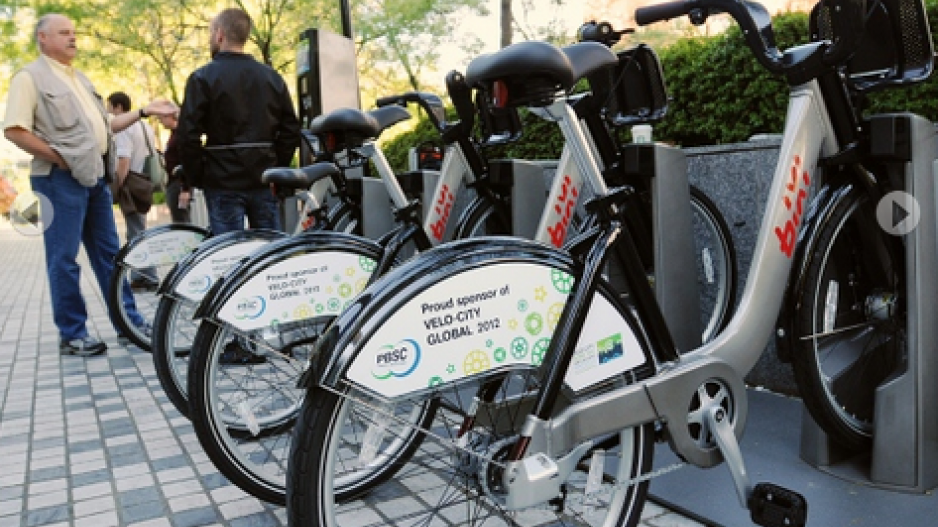The City of Vancouver is changing gears on its plan to roll out a bike share system.
In 2013, the city made the preliminary decision to contract bike share operator Alta Bicycle Share, now called Motivate, and equipment provider Bixi to run a system for Vancouver.
The companies had partnered to run large bike share systems in New York, Toronto and Chicago, but both businesses ran into financial problems throughout 2013 and 2014.
In January, the city was still trying to negotiate with Alta, but Vancouver is now looking for alternate providers, according to a press release. The city had planned to spend $6 million on the system and have it up an running by the spring of 2015. Business in Vancouver was unable to reach the City of Vancouver for more information.
“As a result of these issues, the City and Motivate (formerly Alta) have not reached agreement and no funds have flowed to the company,” reads the release. “Recently, significant evolution and innovation has occurred in public bike share industry, including new proponents, technologies and operating models – through all of which the City of Vancouver expects to achieve significant cost efficiencies.”
The owner of a Richmond, B.C. business that was rejected in favour of Alta and Bixi says he’s ready to take another shot at bidding for the contract.
SandVault Group Global Solutions has made several bike share systems for Miami Beach, Long Beach and Sao Paulo, Brazil. Back in 2011, the small engineering company had partnered with several local businesses, such as Modo Car Co-op and SAHN Bike Helmets, to submit a joint bid to the city.
“The available technologies have changed a fair amount over the last number of years,” Murray said.
Those changes include adding tracking technology to bikes to make the bikes “smart.”
“We’re in transition from old designs to new designs,” Murray said. “There are some very new and quite exciting opportunities. So new in fact that I haven’t told anybody exactly what we’re doing.”
Vancouver’s proposed system faced a significant hurdle because of British Columbia’s mandatory bike helmet law, which is not in place in most other jurisdictions. SandVault had designed and built a helmet vending machine, which it demonstrated to the city in early 2013.
The city paid $50,000 to develop that machine. Murray confirmed he still has the equipment in his warehouse.
“I’m going to have see what they’re up to and what they want to do,” Murray said.
@jenstden




